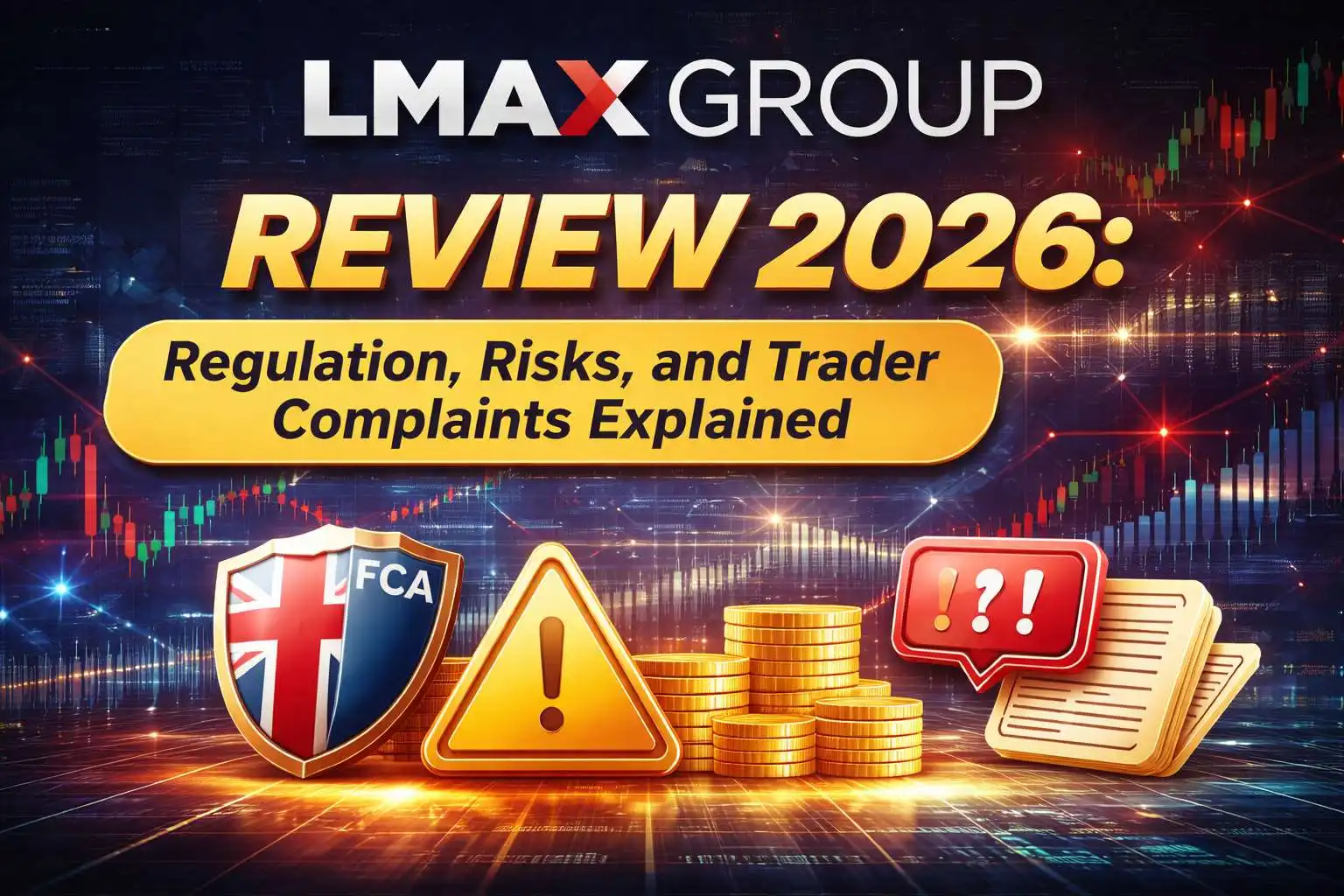LMAX GROUP Review 2026: Regulation, Risks, and Trader Complaints Explained
LMAX GROUP review: FCA regulation, WikiFX score 7.51/10, trader complaints, risks, and broker comparison. Is LMAX GROUP safe for traders?
简体中文
繁體中文
English
Pусский
日本語
ภาษาไทย
Tiếng Việt
Bahasa Indonesia
Español
हिन्दी
Filippiiniläinen
Français
Deutsch
Português
Türkçe
한국어
العربية
Abstract:IBs provide valuable services that attract new clients to brokers, earning them a share of the revenue generated. But how exactly do introducing brokers make money?

In the world of online trading, introducing brokers (IBs) play a crucial role by acting as intermediaries between traders and brokerage firms. While they don't execute trades themselves, IBs provide valuable services that attract new clients to brokers, earning them a share of the revenue generated. But how exactly do introducing brokers make money? In this article, we'll explore the various revenue streams that fuel their business model.

The most common way IBs make money is through commissions. When an IB successfully refers a new client to a broker, they receive a percentage of the trading fees that the broker earns from that client. These commissions can be based on various factors, such as the volume of trades, the number of transactions, or even the client's deposits. The commission structure is often tiered, meaning the more the referred client trades or deposits, the higher the commission the IB earns.

Another prevalent revenue stream for introducing brokers is spread sharing. In this model, the IB receives a portion of the spread—the difference between the bid and ask prices—that the broker charges clients on trades. This arrangement incentivizes IBs to bring in high-volume traders, as the more trades a client executes, the more the IB earns from the spread.

Some brokers offer upfront bonuses to IBs for bringing in new clients, especially if those clients make significant deposits or meet specific trading volume targets. Additionally, in certain cases, an IB might receive a retainer fee—a fixed monthly or yearly payment for maintaining an ongoing relationship with the broker and continually bringing in new clients.

Many brokers have rebate programs in place to reward IBs for their continued success in referring clients. These programs often include bonuses or increased commission rates for IBs who meet or exceed certain performance benchmarks. Some brokers also offer loyalty programs, where IBs can earn additional perks, such as higher payout rates, access to exclusive events, or marketing support, which can indirectly boost their earnings.

Introducing brokers often provide educational resources, trading tools, and advisory services to their clients. By doing so, they not only enhance the trading experience but also create additional revenue opportunities. Some IBs charge fees for premium services, such as one-on-one trading coaching, advanced market analysis, or exclusive webinars. These fees can supplement their income, especially when clients find value in the additional guidance and insights provided.

IBs frequently engage in marketing activities to attract new clients, leveraging both online and offline channels. Some brokers provide IBs with marketing materials, such as banners, landing pages, and promotional content, making it easier for them to reach potential clients. In addition to commissions, IBs may earn money through referral programs where they get paid for each new client who registers and trades through their unique referral link.

For more established introducing brokers, offering white label solutions can be a lucrative business avenue. In this model, an IB partners with a broker to create a custom-branded trading platform. The IB earns revenue by offering their clients a unique trading environment, complete with their branding, while the broker handles the back-end operations. This arrangement allows the IB to command higher fees and potentially attract a more loyal client base.
Introducing brokers are essential players in the online trading ecosystem, and their ability to generate income depends on their success in attracting and retaining clients. By leveraging a combination of commission-based earnings, spread sharing, upfront bonuses, educational services, and strategic partnerships, IBs can build a sustainable and profitable business. Understanding these revenue streams is crucial for anyone looking to engage with or become an IB, as it provides insight into how they can maximize their earning potential in this competitive industry.

Disclaimer:
The views in this article only represent the author's personal views, and do not constitute investment advice on this platform. This platform does not guarantee the accuracy, completeness and timeliness of the information in the article, and will not be liable for any loss caused by the use of or reliance on the information in the article.

LMAX GROUP review: FCA regulation, WikiFX score 7.51/10, trader complaints, risks, and broker comparison. Is LMAX GROUP safe for traders?

Is withdrawal issue perennial for Phyntex Markets traders like you? Does the Comoros-based forex broker give you numerous excuses to deny you withdrawals? Faced account blocks when raising Phyntex Markets withdrawal queries? Feel that the broker’s customer support service does not exist for you? Many traders have openly expressed frustration on how the broker goes about its business on review platforms. In this Phyntex Markets review article, we have shared multiple complaints against the broker. Keep reading to know the same.

Have you made multiple unsuccessful attempts to withdraw funds from your Tifia forex trading account? Registered successful trades but could not withdraw because of inadequate customer support service? Have you been facing capital losses due to severe slippage on the Tifia login? These issues have become increasingly common for traders here. Many of them have made such allegations on broker review platforms. In this Tifia review article, we have explored some scam allegations. Take a look!

Is withdrawing capital from PaxForex too difficult for traders? Has the China-based forex broker made you trade gold, silver and cryptocurrencies despite not having an office in the United States? Do you find its operational style suspicious? You are not alone! Several traders have expressed these concerns when trading with the broker. In this PaxForex review article, we have exposed the broker through user comments made on several review platforms. Take a look!
